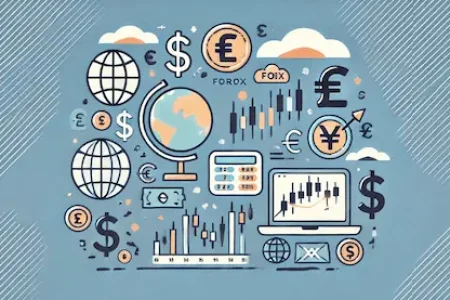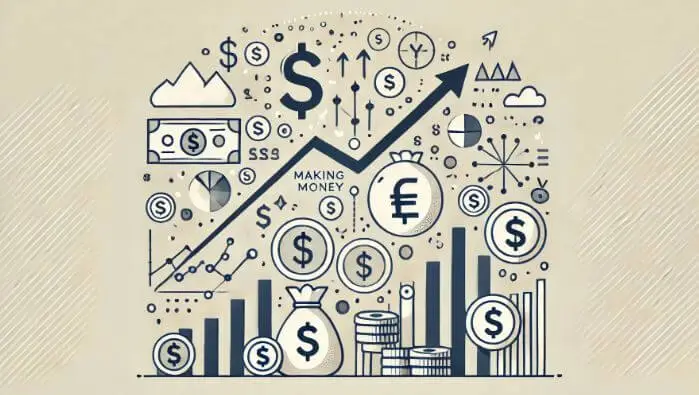Introduction
Forex trading, or foreign exchange trading, involves the buying and selling of currencies on the global financial market. As the world’s largest financial market, Forex sees over $6 trillion in trades every day. Whether you’re new to the financial markets or an experienced investor looking to diversify your trading strategies, understanding how Forex works is essential.
What is Forex Trading?
Forex trading is the exchange of one currency for another at an agreed price. It’s a decentralized market where the world’s currencies are traded 24 hours a day, five days a week. Forex trading is fundamental for conducting foreign trade and business as currencies need to be exchanged to conduct foreign trade and business.
The Forex market consists of currencies from all over the world, which can lead to exchange rate risk that arises from the change in price of one currency against another. For beginners, understanding this dynamic is the first step towards making informed trading decisions.
How does it work?
“How does Forex trading work?” is a question many new traders ask. Forex trading involves simultaneously buying one currency while selling another. This exchange is done through a decentralized global market that operates 24 hours a day, five days a week, making it accessible to traders around the world. The mechanics of Forex trading hinge on the movements of a wide range of currency pairs, such as EUR/USD or GBP/USD, where traders speculate on the currencies’ fluctuating exchange rates. Understanding this process is crucial for anyone looking to engage in Forex trading effectively.
Key Players in the Forex Market
The Forex market is made up of banks, central banks, investment management firms, hedge funds, retail forex brokers, and investors. Here’s how each contributes to the market:
- Central Banks: Influence the market by controlling interest rates and money supply.
- Banks and Financial Institutions: Facilitate the actual buying and selling of currencies.
- Investors and Speculators: Engage in Forex trading to profit from currency fluctuations.
How Currencies are Traded
Currencies are always traded in pairs, for example, EUR/USD (Euro/US Dollar). When you trade in the Forex market, you are always working with two currencies at once. Here’s how it works:
- Choosing a Currency Pair: Decide which currency pair you want to trade based on market conditions and economic factors.
- Deciding on a Trade Size: Determine how much of the currency you want to buy or sell.
- Executing the Trade: Use a trading platform to execute your buy or sell order.
The Role of Leverage in Forex Trading
Leverage allows traders to gain a significant market exposure with a relatively small initial capital. For example, with a leverage of 100:1, you can control $100,000 in the Forex market with just $1,000 of capital. However, while leverage can magnify profits, it also increases potential losses.
You can use tools like the Margin Calculator from Cashback Forex to help you decide how much leverage you need.
Risks Involved in Forex Trading
Like any investment, Forex trading comes with its set of risks:
- Market Risk: The possibility that currency prices will change unfavorably.
- Leverage Risk: Potential for significant losses if the market moves against your position.
- Interest Rate Risk: Fluctuations in interest rates can affect currency values.
Why Trade Forex?
Here are some reasons why traders choose the Forex market:
- Liquidity: The Forex market is incredibly liquid due to the high volume of trading.
- Accessibility: The market is open 24 hours a day, providing the ability to trade at any time.
- Potential for Profit in Rising and Falling Markets: You can attempt to profit from buying (going long) or selling (going short) in the market.
Conclusion
Forex trading offers a dynamic and potentially lucrative investment opportunity, but it requires knowledge, preparation, and a clear understanding of the risks involved. By using strategic approaches and staying informed through reliable resources, you can navigate the complexities of the Forex market effectively.
To learn more about Forex trading strategies, visit our articles on Technical Analysis in Forex Trading and The Best Forex Trading Indicators.



